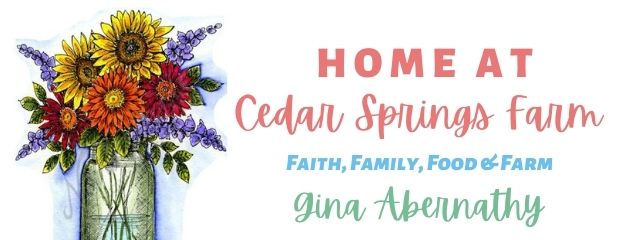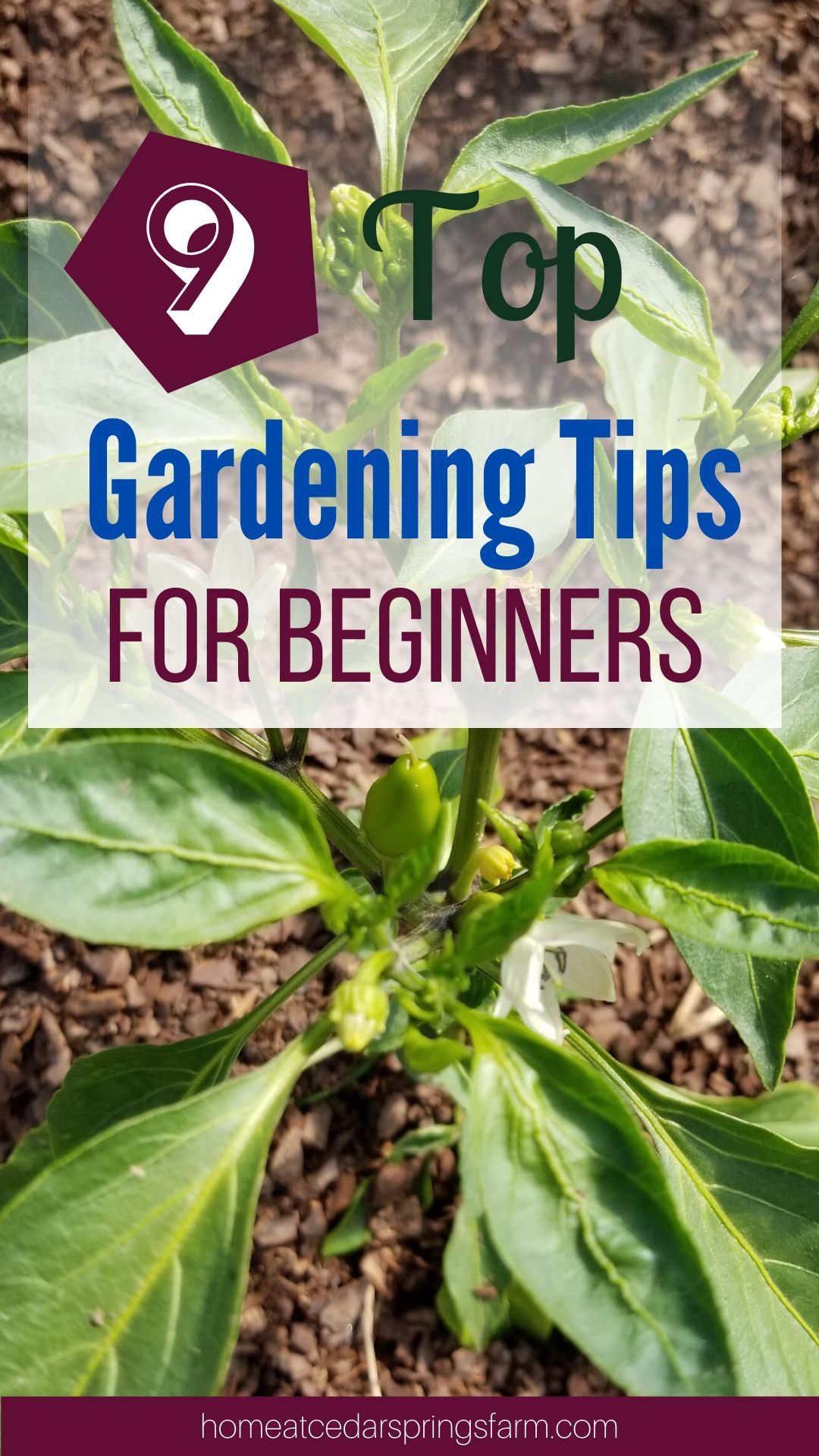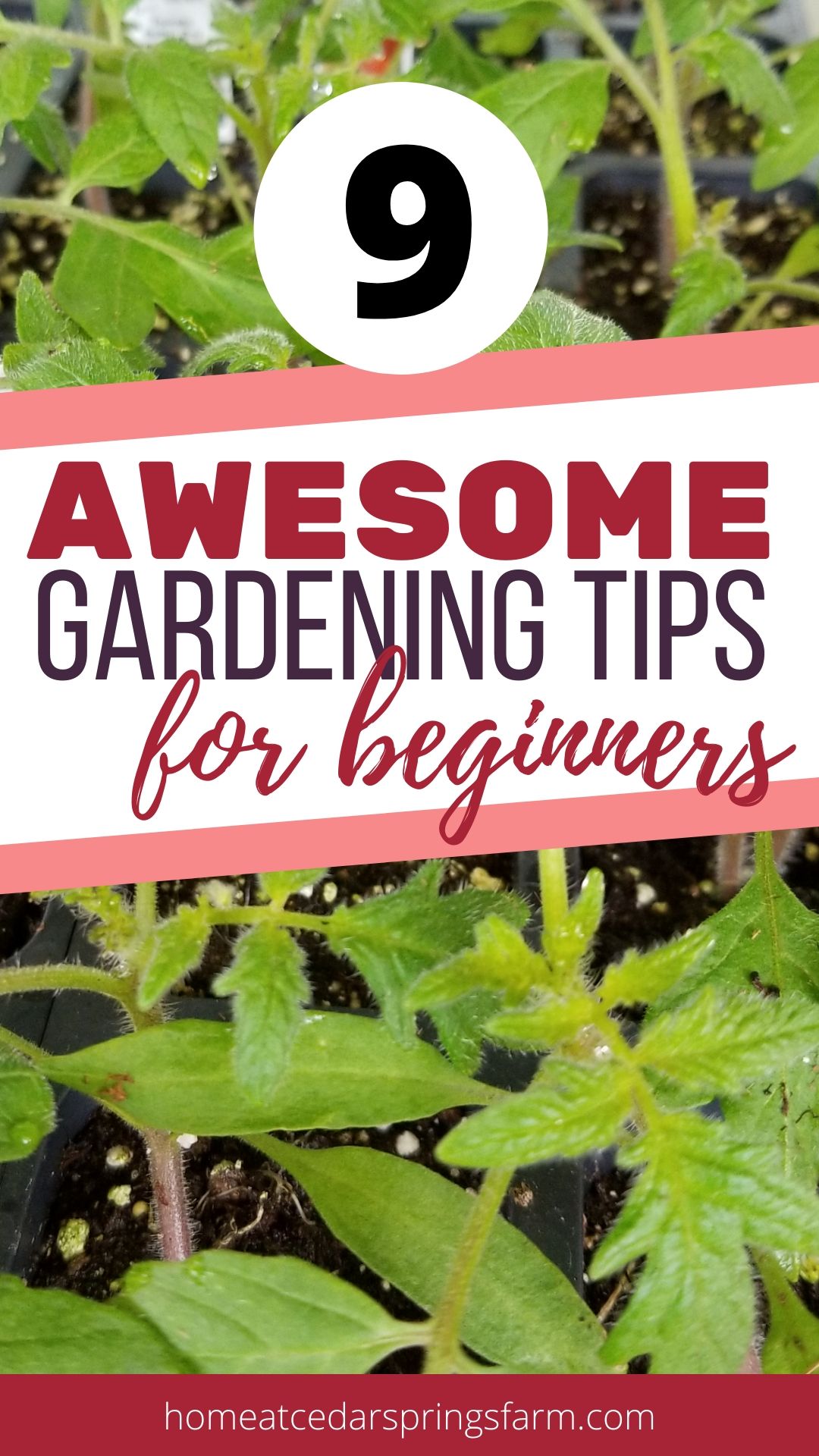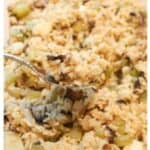9 Top Gardening Tips for Beginners
Growing a garden can be a lot of work but also very rewarding. It’s a great feeling being able to make a salad, roast vegetables, or make a tomato sandwich with the plants you grew in your garden.
If you are new to gardening, have no worries. Below are a few tips to get a beginner gardener started with growing the best garden in the neighborhood.
Choose the Right Spot
Finding the right spot in your yard is essential. Plants need sun and water to survive. Most plants require at least 6 hours of sunlight each day to survive and grow.
If you are short on space in your yard, container gardening is another option. Find pots or large containers for your plants to grow. Many people find that container gardening is easier to maintain, weed, and to keep plants watered.
Access to a Water Source
Plants need water. During the summer, you will need to water your plants. This is not an option. Plants need water to survive. Try to find a garden spot close to a water source. If you have a faucet close to your garden, that would be the best option. You can connect hoses to make them reach your garden area.
Also, invest in a good sprinkler. During the hot months, your plants will need to be watered in the evening.
Start with Good Soil
You need to have good soil for your plants to grow the best. Your garden area will need to be tilled, and your dirt turned before planting. Adding potting soil, compost, and composted manure will add nutrients to the soil. This is also great for the roots as they grow.
Grow the Vegetables You Love
Only plant the vegetables you and your family like to eat. There is no need to plant “stuff” just to plant it. Make a list of the vegetables you want to plant and carry that list with you to the garden center. Most feed and seed stores carry fresh seeds and plants during the spring to help with all of your gardening needs. This list will keep you focused and also keep you from over buying.
Seeds or Plants
Many seeds need to be planted several weeks before they are ready to be transplanted outside. This includes tomato and pepper seeds.
Many gardeners may choose to buy plants ready to go into the ground.
For my garden, I plant cucumbers, beans, squash, okra, corn, and zucchini from seed. These seeds DO NOT need to be started early, and they can be planted directly into the soil. Do try your hand at planting some vegetables from seeds if you have the time. Seeds are cheap, so if some don’t come up, it’s okay. You are not out a lot of money.
For plants, I usually buy cabbage, pepper, eggplant, and tomato plants. These are small plants ready to be transplanted. For beginners, it may be easier to have commercial greenhouses start these plants from seed and get them ready for you to plant.
Be sure to check out my post on the 7 Easiest Vegetables to Plant in your Garden.
Weeding
If you plant a garden, chances are you will have weeds. Weeds are going to be in your garden, competing for the nutrients in the soil. Stay on top of the weeds by checking your garden several times a week for them. Pull them, use a hoe, get them out of your garden. Mulch, heavy compost, and plastic can help to keep weeds at bay for a while.
Keep out those Rabbits and Deer
We seem to have a huge problem with deer and rabbits invading our garden every year. Get creative with hanging bags and pie pans from branches, and we have also found Liquid Fence Deer and Rabbit Repellent to work in our garden.
Watch for Insects and Diseases
Insecticidal soap sprays are good for vegetables and keeping the insects away. Check with your local feed and seed store for more options on how to rid those pesky insects from your garden. Insects can destroy your plants in a matter of days. Keep a check on the leaves on each plant during the week and treat as necessary.
Harvest Vegetables
This is the most rewarding part of your garden. You should be able to harvest your plants multiple times throughout the growing season.
Tomatoes, cucumbers, squash, and zucchini always produce more after being harvested. I always end up canning these vegetables to use during the winter months. A single tomato plant can produce up to 10 pounds or more of tomatoes a season.
Be sure to subscribe to my email list and download your FREE 5-page Gardening Journal.
Tips:
- Keep a log of what you planted, where you planted it, and how much you were able to harvest from your garden. This may help you next year in planning your garden.
- Also, keep a list of the seeds and varieties of plants you grew this year. This will ensure you get the same seeds/plants for your next garden or you may decide to try something different.
- Don’t get carried away and over plant. We are all anxious and ready to get our garden planted this year. Use your list when shopping for seeds and plants. This will keep you in check for what you actually have room for in your garden.
- Remember, next year you can always increase the size of your garden area. You will find out quickly if you like to be outside, like to water and weed, and like to work in the heat. 🙂
Being able to harvest your vegetables will be rewarding and satisfying. You will be able to look back at all of your work and effort and smile, knowing you are a great gardener.









Great tips! Last year we took the step to move from just container gardening to creating an actual garden and it was great. We loved having all the extra space to plant even more, and the fresh produce was a great perk. Especially spinach… I LOVED being able to make salad with spinach fresh from the garden. I can’t wait until I can enjoy the fresh veggies again this year.
Thanks for your reply. I agree, fresh produce is awesome! I also like fresh spinach in my salads as well.
I went from conventional gardening to a Tower Garden many years ago! No soil, less water and easy peasy to grow!!!!
Sounds like a great way to garden. 🙂
This is great for beginners. It is clear steps that do not seem overwhelming or full of jargon.
Thanks Christine!
Great tips! I am terrible with plants, and both my parents are gardeners #fail 🤣
You can do it! Just start small and go from there. Before long, you will be growing your own food.
Oooh thanks for the tip on the deer and rabbit “fence”! Will have to keep that in mind. In the past we had success with putting one of my husband’s goose decoys in the garden 😉 But that worked one year and not the next year for some reason. We may need to try something new this year.
Animals are so smart. They get used to things being in the garden from one year to the next. Yes, try the liquid fence. It works for us and we have deer and rabbits all around us.
Loved this post, can’t wait to start!
Thank you!
Loved this post, can’t wait to start!
Thank you!
So helpful! As someone with no green thumb – I love these tips!
Thank you!
these are great tips, we want to start a garden soon!
Gardening is fun. Hope you are able to start one soon.
This is great info! I’m about to start a garden on my porch and I’m nervous I’ll kill everything haha.
You will be fine. Just find the right container for what ever you are planting. Just water and find a sunny spot. Best of luck!
Great post!
We are just starting out with herbs and a couple of veggies.
We definitely did not start in the best place though, not enough sunlight.
So we’re moving to another spot to try again.
Helpful tips! Thanks 🙂
You are welcome. Best of luck with your garden.
We just started our first garden so this is really helpful! Thank you!
I really want to start a garden but have no clue on how to start, so this is incredibly helpful!
Great info! I’ll have to pick up some of that deer and rabbit repellent. The bunnies are all over the place this year!
Great post! I love to garden and I appreciate the siol recomendations.
Considering how the lock-down affected the availability of food I have considered adding veggies to my gardens. This is a good beginner’s quide.
Yes, many people in my area have planted gardens this year because of the lock-down and shortage on some of the foods in the grocery store. Thanks for stopping by!
Such great tips! I’m in my second year of urban raised bed gardening. It’s going pretty well aside from the constant battle with pests. Last year my beds got infested with Japanese grubs. This year I’m battling spider nights. Organic gardening is so much fun but it’s a constant battle too.
Very good tips. Thanks for sharing at Blogging Well With Pinterest.
These are excellent tips that will make a huge difference between an okay garden and a great garden. There are a lot of new gardeners this year, so this is incredibly helpful for those starting out who may not know these things. I’ve been gardening my entire life and love it.
Great tips, thank you! I’ve considered starting gardening for a while but it seems like such an overwhelming process! Especially to possibly lose all my hard work to insects or deer! I’ll have to check out the products you’ve recommended to keep them at bay!
Love these tips! My parents have an allotment and I love helping them out around. I am hoping to grow a few things in my uni garden this year 🙂